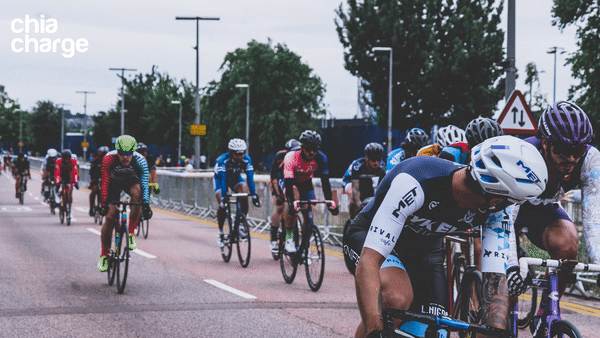Most Popular
A column with no settings can be used as a spacer
Link to your collections, sales and even external links
Add up to five columns
Most Popular
A column with no settings can be used as a spacer
Link to your collections, sales and even external links
Add up to five columns
Add description, images, menus and links to your mega menu
A column with no settings can be used as a spacer
Link to your collections, sales and even external links
Add up to five columns
Add description, images, menus and links to your mega menu
A column with no settings can be used as a spacer
Link to your collections, sales and even external links
Add up to five columns

Does Running Help Your Cycling?
January 19, 2018 3 min read
Most people are either one or the other - a cyclist or a runner. And for most cyclists the very idea of taking time away from riding to go out running is laughable. But Tim Wiggins of Life in the Saddle fame, explains why doing just that can lead to better times on two wheels.
Over the last few months, I have begun running. Not Forrest Gump style - with hour upon hour spent pounding the pavement; far more the occasional trail run. Even so, I have noticed a number of benefits from building cross-training into my regime; both for my cycling performance, and for sporting enjoyment.
Does running help your cycling? I believe it does. It opens up more doors, it strengthens muscles, and it increases the variety. It seemed worth expanding on these points, in a short blog post: 
1) Improved Muscle Strength and Muscle Conditioning
The first notable benefit, is improved muscle strength, and a more rounded muscle profile. The chances are, if you are a dedicated cyclist, you have done a great job of building up your cycling specific muscle groups. The problem is, you may have neglected the other muscle groups in your body in the the process.
Whilst your 'non-cycling' muscles aren't of primary importance to your power output on the bike, they do play a key supporting role. They keep your main muscle groups in place, and stabilise their movement. If you neglect building up these muscles, then you increase the risk of injury, and that could really hamper your cycling. By building in cross-training, such as running, rowing or weight lifting, you improve the overall condition of your body, and your cycling should benefit as a result.
2) Greater Opportunities to Train
Building running into your training plan also opens up a lot new opportunities to train. Because running is a constant exercise (there is no free-wheeling or stopping at junctions), you can get a good workout pounding the trails or pavement for an hour, which you might struggle to do on your bike.
Running can therefore be great for when you are time-constrained. It will allow you to get in that workout, train that cardiovascular system, and make some gains; even when you are short on time.

3) More Variety and Exploration
My third notable benefit of running, is variety. Anything in repetition can get a bit boring after a while, and sometimes cycling loses its draw. Adding running to your routine will give you another discipline to call upon to boost your endorphins.
4) More Event Options
As well as more training options, running potentially opens up more events that you could add to your calendar. I am currently looking into taking part in the Original Mountain Marathon this October!

5) All Weather Training
Finally, running in the rain and wind somehow doesn't seem as bad as riding in it. At least, it is different, and that perhaps makes it more manageable in the short term. Having had a winter of rain, gales and hail storms, I have sometimes been glad of a short run, rather than submitting myself to several hours of battling the elements on the bike.
Therefore, there seem to be some notable benefits of building running into your exercise line-up. It could benefit your performance, and increase possibilities for greater variety.
What do you need to get started?
What do I recommend as starter kit for running? You can of course run in pretty much anything, but I quickly found that a good pair of well-fitted shoes, and some quality compression clothing, will make a huge difference.

I had always been a bit of a sceptic of the benefits of compression clothing; but that has changed dramatically, since I have begun running. Compression socks are more comfortable, more cushioned and more supportive: to the extent that I get shin splints when I don't wear them, but no notable lower-leg soreness when I do!
Running compression shorts also seem to make a significant difference and seem to notably reduce DOMS (Delayed Onset Muscle Soreness), as well as just being far more comfortable than loose baggy running shorts, as they stay in place and don't create uncomfortable seam rub.
Kit yourself out with some good running kit, and hit the trails. I think you will be surprised how many benefits it has for your cycling, and general well-being.
You've unlocked a free gift! Make your selections now.
Unavailable
£0.00

